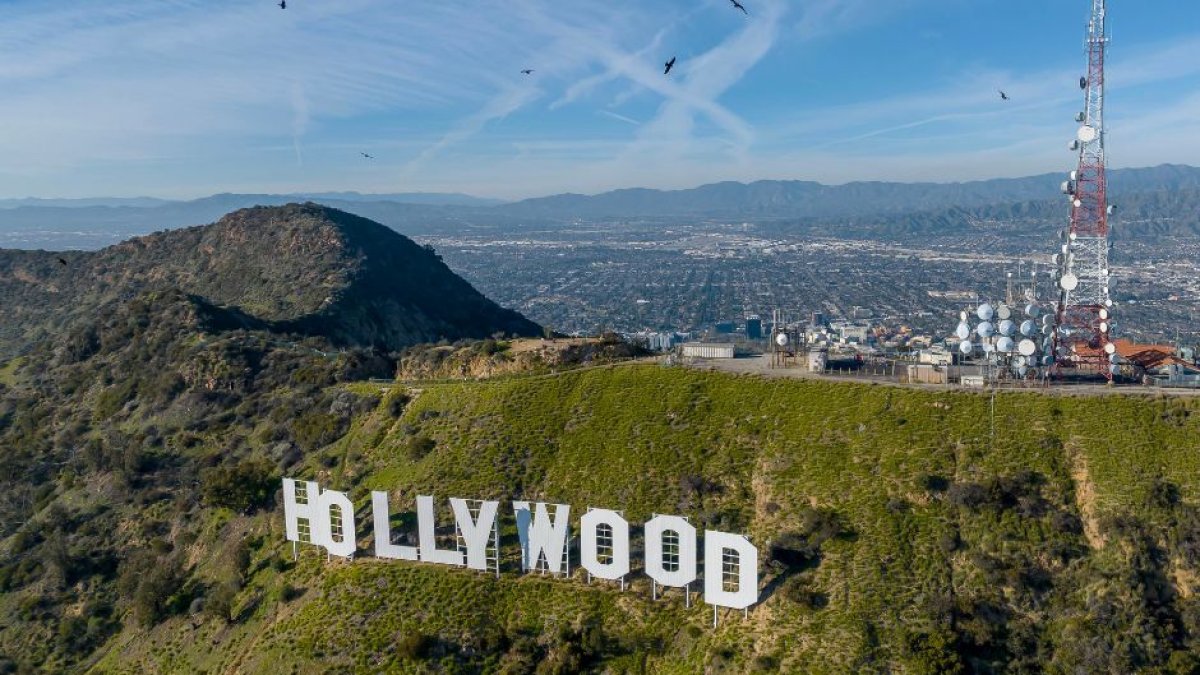Hispanic representation in leading roles in Hollywood falls by half in just one year
Despite being the second largest community in the United States, a study reveals that it still does not have sufficient visibility in the film industry, which also tends to stereotype Latinos.

Hollywood sign
Hollywood is ignoring the Hispanic community, or at least that is the feeling that Latinos have following a study carried out by the University of Southern California on Hispanic representation in the film industry. The report reveals that, in the last 16 years, Hollywood has had very little Latino presence in its projects, whether film or television. In in 2021, Hispanics had 10.5% representation, but this fell to 5.8% in 2022.
The study was carried out by analyzing the 1,600 highest-grossing feature films that were released between 2007 and 2022. The results worried Latinos not only because of the low representation, but especially because of the low Hispanic presence in the case of leading roles. Thus, in the 16 years studied, only 75 feature films had Hispanic or Latino actors in main roles, either as the main character of the film or as co-star. Of this percentage, five of the Hispanic or Latino actors were 45 years old or older. The most worrying thing was that three of those five roles were played by the same person: Jennifer López.
Does Hollywood make Latinos invisible?
The numbers are worse in regards to the production companies. The study reveals that there is not a single year in which all the major production companies released at least one film with one main character or co-star of Hispanic or Latin origin.
"This is soul crushing for this community, as Latinos represent 49% of Los Angeles, the entertainment capital of the world," the report reads. This is just another example that, according to the study’s author Ariana Case, demonstrates the little visibility that Latinos have in Hollywood:
The figures do not improve in terms of representation behind the cameras. According to the report, production companies do not tend to trust Hispanic filmmakers to direct their feature films. In fact, only 4.6% of the directors of the 1,600 films analyzed were directed by a member of the Latino community. This means that, in 16 years, only 47 directors of Hispanic origin were behind the cameras of major Hollywood films. Of these 47, only five were Hispanic women.
Hollywood stereotypes the Hispanic community
The vision that Hollywood presents about the Hispanic community is also worrying. The study reveals that almost every time a Hispanic character appears in film or television show, they are associated with crime (57.8%). Of this percentage, 46.2% are linked to violent crimes. Other stereotypes that the film industry generally places on Latinos are illegal immigration (24.4%), having little income (24%) or being sexualized (31.1%).
This discovery led Latin actress America Ferrera ("Barbie," "Superstore") to express her concern not only about the low visibility of Hispanics, but also the constant stereotypes that the industry applies to the community. She said at a Women's Luncheon organized by the Academy in statements reported by Breitbart that this left her "devastated":

























